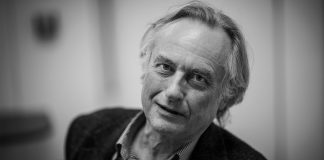Christian persecution, at the highest level in the last three decades
One in seven Christians is a victim of persecution worldwide and one in sixteen Christians dies every day for their faith, according to a report published by the Open Doors organization, revealing that Christian persecution has reached the highest level in the last three decades.
Jim Ayer | Forever a fisherman
Jim Ayer was, for most of his life, a slave to his own dreams—a fisherman of thrills and addictions. From when he was a child, he attached a ball and chain to each ankle, closed himself up in his own world, and threw away the key.
Beholding beauty
I’m walking along a remote beach in Hermanus, South Africa. There’s not a single other footprint in the sand. I take off my shoes and let my feet sink deep into the warm, fine powder. Bliss. My friend, a local who drove me here, takes one look at my face and asks with undeniable pride, “What do you think?” But I can’t answer....
Old Testament and New Testament | The unity of Scripture
The Bible has 66 books written by different authors over about 1,500 years. Is there a common theme, a leitmotif? If so, which is it? Is there an Old Testament God and a New Testament God?
Humble faith
The Church of the Nativity in Bethlehem is the oldest continuously-used church building in the world. It dates from the fourth century, when Roman Emperor Constantine’s mother visited the Holy Lands to identify locations from the life of Jesus for pilgrimage destinations and church sites. From a distance, the point of entry to the church is not obvious, particularly when the area is...
Is there life after death?
As a media and communications graduate, I love stories in all their forms, but I’ve always held a special place in my heart for science fiction. Exotic planets, alien races, unique extrapolations of scientific theory and bizarre visions of the future of our world—no other genre captures my imagination in quite the same way.
Picturing heaven
What do you imagine heaven will be like? American science-fiction writer Isaac Asimov famously said, “For whatever the tortures of hell, I think the boredom of heaven would be even worse.” Although I love Jesus, I think I am a bit afraid of getting bored there too. There’s a prevailing picture of heaven as being some sort of suspended animation, which may play into this.
The written revelation
Why did God choose to reveal Himself through a sacred text? Were there no other ways? Does God still inspire scriptures today?
Practising faith
When I was at high school, I played basketball a lot—most days at school, then team training sessions and often two or three games each week. At university, I played on the best team I have been part of. We trained and competed regularly over two years, and twice won our league championship.
I will say it again: Rejoice!
Although we experience more positive than negative elements in life, we are still more intensely and more quickly affected by the unpleasant ones. How can we protect our joy of living despite the problems that beset us?
Saint Paraskeva: History and mythology
For the crowds gathered around the casket containing the relics of Saint Paraskeva, everything is just dream and faith. Amazingly much faith. There is also something else. There is the hope of a miracle, a miracle that will cure diseases, cover debts, and make life happy.
So you’re church-shopping…
Have you ever seen the early morning worship programs on television? The packed congregations, the huge church venues, the smooth-talking evangelist who delivers the perfect sermon . . . Church seems to be where the action is. That there are so many new mega-churches popping up all over the world suggests that a lot of people are desperate for spiritual guidance and fellowship....
What do dreams mean?
Last night I had one of those dreams. You know, the kind you wake up from and remember. Basically, there were a lot of things that were unusual, but people and places that were familiar—common themes for many who remember their dream content.
Thank God for atheists?
Richard Dawkins is arguably the world’s best-known atheist. His 2006 book The God Delusion was a runaway success and widely influential. That’s why theologian Alister McGrath was surprised when a young man told him he became a Christian after reading The God Delusion.


























